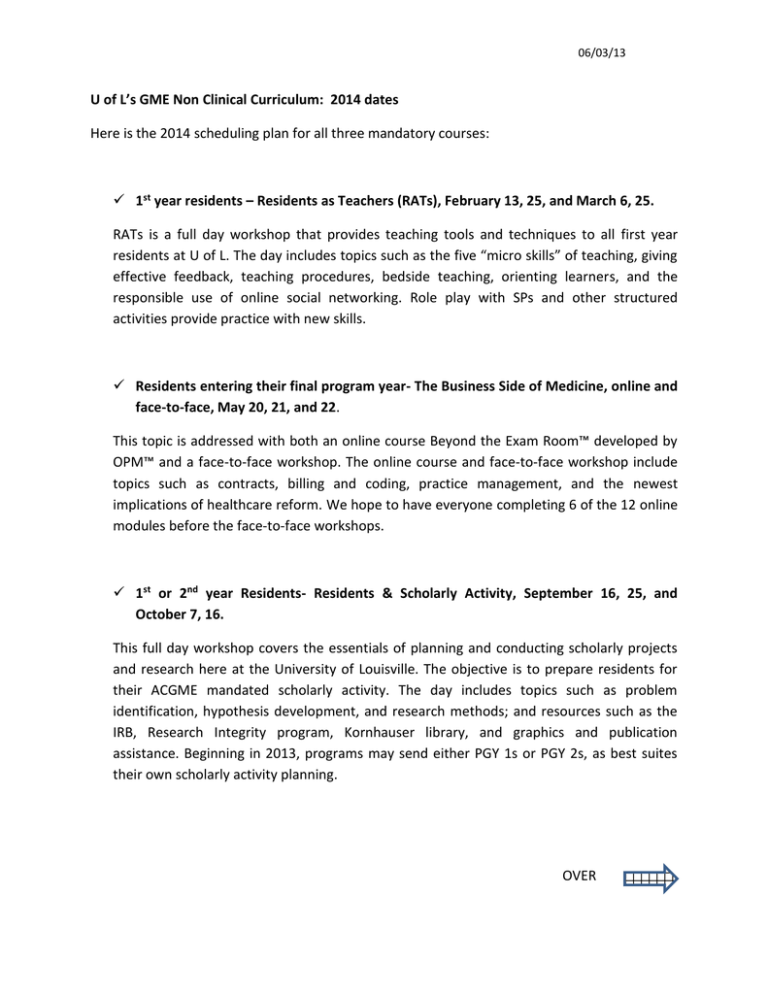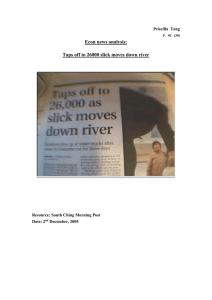U of L’s GME Non Clinical Curriculum: 2014 dates
advertisement

06/03/13 U of L’s GME Non Clinical Curriculum: 2014 dates Here is the 2014 scheduling plan for all three mandatory courses: 1st year residents – Residents as Teachers (RATs), February 13, 25, and March 6, 25. RATs is a full day workshop that provides teaching tools and techniques to all first year residents at U of L. The day includes topics such as the five “micro skills” of teaching, giving effective feedback, teaching procedures, bedside teaching, orienting learners, and the responsible use of online social networking. Role play with SPs and other structured activities provide practice with new skills. Residents entering their final program year- The Business Side of Medicine, online and face-to-face, May 20, 21, and 22. This topic is addressed with both an online course Beyond the Exam Room™ developed by OPM™ and a face-to-face workshop. The online course and face-to-face workshop include topics such as contracts, billing and coding, practice management, and the newest implications of healthcare reform. We hope to have everyone completing 6 of the 12 online modules before the face-to-face workshops. 1st or 2nd year Residents- Residents & Scholarly Activity, September 16, 25, and October 7, 16. This full day workshop covers the essentials of planning and conducting scholarly projects and research here at the University of Louisville. The objective is to prepare residents for their ACGME mandated scholarly activity. The day includes topics such as problem identification, hypothesis development, and research methods; and resources such as the IRB, Research Integrity program, Kornhauser library, and graphics and publication assistance. Beginning in 2013, programs may send either PGY 1s or PGY 2s, as best suites their own scholarly activity planning. OVER 06/03/13 Course location: The University Club on the Belknap Campus. Contact information: Scheduling and special needs: Jennifer Hall Jennifer.hall.1@louisville.edu Content and faculty preparation: Karen Hughes Miller, PhD Karen.miller@louisville.edu How the non-clinical curriculum helps programs: GME receives help from faculty in many Programs in conducting these courses, so it’s only fair that Programs should take some credit for the success. Please consider including descriptions of these courses and your faculty’s involvement in any program description documents you are preparing. We are willing to share agendas, program evaluation data, and citations of presentations when available to help you describe how residents are being educated in these content areas. We are also willing to partner with faculty or residents looking for scholarly activity or faculty development projects in these content areas. Finally: Thanks to all coordinators for your help! We could not deliver these programs without your support, and we sincerely appreciate all you do to get our learners in the right place on the right days!


